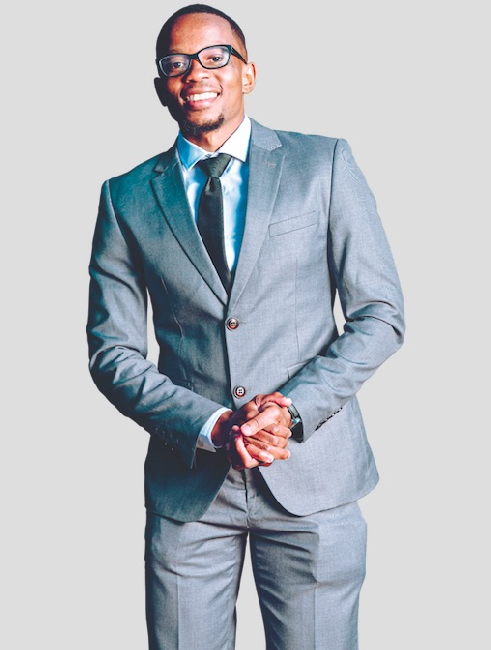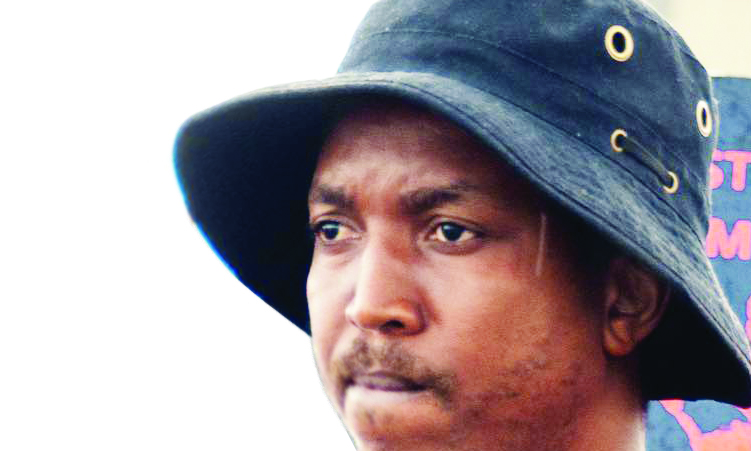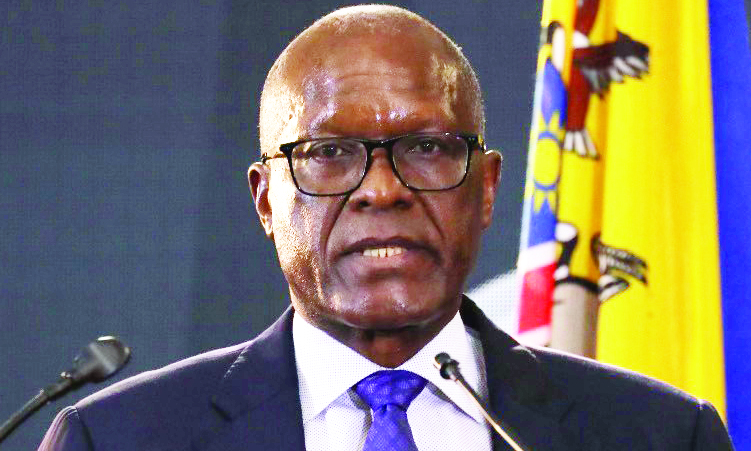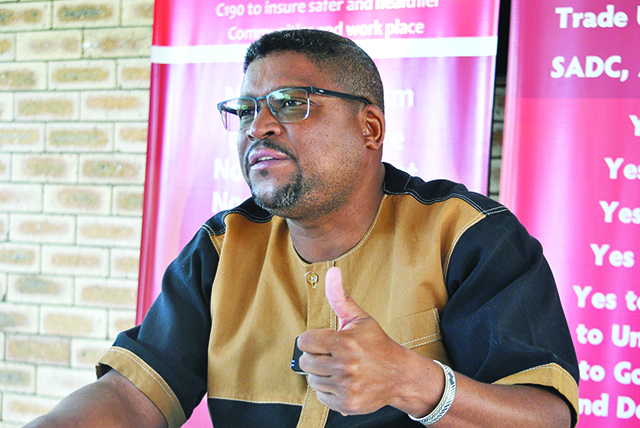MANY might not know that the voice behind Foster Digital Education educational videos is that of Fimanekeni Mbondo (FM), and he chats to The Namibian’s Walter Kariko (WK) about founding and running the budding financial education start-up. He asks whether the damning statistics around unemployment and people in informal structures indicate whether Namibians are educated.
WK: Who is Fimanekeni Mbodo above and beyond the known professional? [Education, home town, achievements, etc?]
FM: Just a regular guy, born at Ongwediva. I spent my childhood between Ongwediva with my parents during school terms, and in a village called Omundudu with my grandparents during the holidays, farming. I attended Oshigambo High School and thereafter the University of Cape Town for my undergraduate studies. I graduated with a financial accounting degree.
WK: As a founder and chief executive officer of Foster Digital Education, walk us through your key duties?
FM: They are nowhere near as glamorous as those titles sound, I’ll tell you that. When you’re starting a small business with limited human capital, you do a bit of everything in the beginning. I was no exception. From writing code to sales and marketing, I’ve done it all. In a way, that has broadened both my interest and abilities. Fortunately, over time we have attracted some incredible people, which has greatly eased my responsibilities at the company. I still enjoy being involved in a bit of everything, but my two primary roles now are strategy and management. Strategy involves continuously assessing what we are trying to achieve and how best to go about it. Management involves organising all the moving bits in real life to get there.
WK: Tell us more about Foster Digital Education and why it was formed?
FM: There’s a story to it – when a close friend Abraham Ingo, and I completed secondary school, and left to pursue our tertiary education, we had a great challenge to overcome. We both found adopting to learning environments that were very reliant on technology to facilitate education challenging. This was because our high school experience was almost entirely manual. At the end of the first year at university, we came together and resolved to create quality online educational resources and technologies to complement the Namibian secondary education system. That’s how Foster Digital Education came into existence.
We started out by building a digital learning platform tailored to Namibian high schools that offered online video lessons, online tutoring, career services, as well as online assessments and predictive analytics. Soon after, we discovered just how much bureaucracy was involved when operating in formal education in the country. Schools and other stakeholders were hesitant to work with any service provider that wasn’t directly recommended through government structures.
We then turned our attention to life-long learning, with an immediate focus on financial literacy and skills development. We started a corporate social responsibility programme that involved educating the Namibian public on financial, economic, and societal matters impacting the country through entertaining and engaging media.
It wasn’t long before corporate Namibia was knocking on our doors to collaborate. This led to the addition of a communications division at Foster.
WK: When was Foster Digital Education founded?
FM: The initial idea came about in 2013, but the company wasn’t incorporated until four years later when we completed an incubation programme with the Namibia Business Institute of Innovation.
WK: How are professional relationships important in the financial education sector?
FM: Arguably more important than anything else. The financial services sector is one of the largest sectors of the Namibian economy, and it is also one of the fastest evolving. New products, services and regulations come into play in that sector all the time. You will not have experience with all of them. However, Namibia has incredibly talented and competent professionals in that space at different institutions. The ability to reach and collaborate with those organisations and professionals then becomes crucial to financial education. You can only teach what you know well.
WK: What are the specific leadership traits you are bringing to the financial education and marketing sector?
FM: I think the most important leadership trait for anyone operating a business in Namibia, especially over the last decade, is adaptability. This is especially true for small businesses and new market entrants. The Namibian economy is in a bad place and has been since 2015, in terms of growth. And the size of our market has always been relatively small if you look at population. Therefore, anybody operating a business here has to be able to adapt and do so quickly. Many founders come into business with set ideas about what they would like to do and how to do it, and cling on to those ideas even when the realities demand different approaches.
In a difficult business environment, those who adapt and do it quickly, survive and grow. Those who do not, wilt and disappear.
WK: How do you apply the experience from your former positions to your job today?
FM: I began developing my business and running it while still at university and continued afterwards. So, I don’t believe that anything prior truly prepared me for that. If anything, running a business is preparing me for future challenges. I think that is a good thing. In an age where things are changing as drastically as they do now, experience is going to start mattering less than the ability to learn new things quickly. Fairly, that is going to be what matters in the labour market going forward.
The only aspect of experience that is not going to be phased out is the experience of dealing with people, which ties into emotional intelligence. That has always been and is always going to be essential in business and personal relationships.
WK: What advice would you give to a young Fimanekeni Mbodo just stepping out of university?
FM: Keep learning, always. What university and any other formal learning institution does is give you fundamentals. The real learning happens when you apply your mind to real life situations every day. That is how you develop mastery in your field. As a society, we have to start getting rid of the notions equating qualifications to expertise. I believe that has created an environment where people are incentivised to chase qualifications without necessarily aiming to solve real-world problems. Can we call ourselves an educated nation when half of the people in our nation’s capital live in informal structures? When our youth unemployment rate is bordering the 50% mark? When the majority of the population does not have medical aid or retirement savings? I do not think so.
WK: From whose well of wisdom do you draw? Any mentors or are you self-made?
FM: I don’t believe that anyone on this planet we live on is self-made. We all draw our foundations from those that came before us and the ones that help us along the way. I believe that everyone I come across is my superior in some way, and so I look for that in everybody and learn from them. But if I were to single out a few of the most potent influences on my life, I would say Thomas Sankara and Cesaria Evora. Thomas for his fearless conviction of wanting a better future for his country and all of Africa. Cesaria for chasing her musical dreams at an age where most people have given up and conformed to society’s discouraging voices. Doing so to the point of becoming one of the finest musical acts in Africa and the world, and winning a Grammy for her efforts. I’m inspired by people who live on their own terms like that.
WK: Recommend three good reads.
FM: ‘The Slight Edge’ by Jeff Olson, ‘The Obstacle Is The Way’ by Ryan Holiday and ‘The Richest Man in Babylon’ by George Clason.
WK: What do you do in your spare time?
FM: I enjoy physical activity. I believe it to be the best way to get the mind in a healthy place. I go to the gym five times a week, I run at least twice a week and I also go to a boxing gym from time to time.
My second favourite pastime is reading, mostly non-fiction, but I think that should change. The third thing I like doing is meeting people from all walks of life and networking. I would actually like to start doing more speaking engagements around young people, business and finance.
Stay informed with The Namibian – your source for credible journalism. Get in-depth reporting and opinions for
only N$85 a month. Invest in journalism, invest in democracy –
Subscribe Now!






